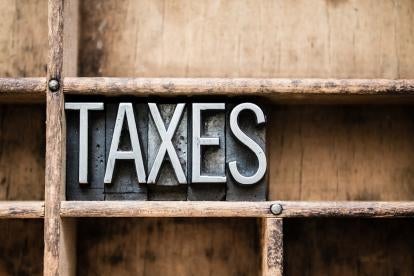Now that the New York State legislature has ended its session, we can examine one piece of legislation that changed the landscape for tax appeals challenging the assessment by the New York State Department of Taxation & Finance (DT&F) of income and excise taxes in New York State.
The budget for fiscal year 2023/24 included a provision that gave DT&F the right to appeal certain cases decided by the New York State Tax Appeals Tribunal. Prior to this change and since its creation in 1987, both the taxpayer and DT&F could appeal a determination of an Administrative Law Judge (ALJ) in the Division of Tax Appeals, but only a taxpayer was permitted to take an appeal from a decision of the Tax Appeals Tribunal by filing a proceeding under Article 78 of the Civil Practice Law and Rules in the Appellate Division. For many years DT&F has sought the right to appeal Tribunal decisions to the Appellate Division. Those efforts were fruitless until this year when legislation was enacted that permits DT&F, in consultation with the New York State Attorney General, the right to petition for judicial review of a decision of the Tribunal that is “premised on” the “interpretation of the state or federal constitution, international law, federal law, the law of other states, or other legal matters that are beyond the purview of the state legislature.” S.B. 4009–C / A.B. 3009–C, Part V § 1. This provision took effect immediately upon enactment and applies to all decisions of the Tribunal including proceedings presently before an ALJ in the Division of Tax Appeals, as well as cases pending before the Tribunal.
When the Tribunal was established, there were several rationales for providing that only taxpayers could take an appeal from a Tribunal decision. One reason was that DT&F, an agency within the executive branch of government, ought not to be able to appeal a decision of the Tribunal, another agency within the executive branch of government (as opposed to a court within the judicial branch). In other areas of the law involving executive branch determinations (i.e., licensing, regulations, ratemaking, etc.), the government may have the right to appeal an ALJ’s determination to an internal appeals board, commission, or agency head; however, it usually cannot appeal an adverse decision by its own final administrative adjudicating officer or body.
Another reason was to make it easier for taxpayers to find representation since the Tribunal, not being within the judicial branch, allowed representation by accountants, enrolled agents, or other tax professionals in addition to licensed attorneys.
Finally, another basis for not providing a right to appeal by DT&F was that the taxpayer must pay for its representatives while the state has lawyers to handle appeals that could drive it to file appeals in all or almost all cases.
There are several issues that arise from this change to the tax appeals process. First, it is common practice to raise all potential claims to contest a tax assessment including U.S. constitutional issues, federal statutory issues, tax treaties or the laws of another state. Now, when making those claims it may be a basis for DT&F to seek to appeal an adverse Tribunal decision, especially if the reasoning and basis of the Tribunal decision is not made clear. Additionally, in regard to pending cases in the Division of Tax Appeals and the Tribunal, since taxpayers made decisions on representation, strategy, and tactics based upon the rules as written before this amendment; those decisions may have been different had they known that there was a potential for appeal by the Department.
This amendment took some taxpayers and tax professionals by surprise. New York State was among the first to adopt a tax appeals tribunal; many states have modeled their own tribunals and barred appeals by the tax department from those tribunal decisions (see, CA; MA; MI). Other states have tax courts within the judicial branch where both sides can appeal through the courts (see, NJ; OR). Despite this, the legislature left the prohibition on the tax department appeals of New York City Tax Appeals Tribunal decisions.
It remains to be seen if there will be litigation challenging the grant of a right to appeal an executive agency decision by a sister executive agency. Also, applying the new rule to pending matters may be a basis for a claim that the new law may only be applied to cases initiated after the effective date.



 i
i


